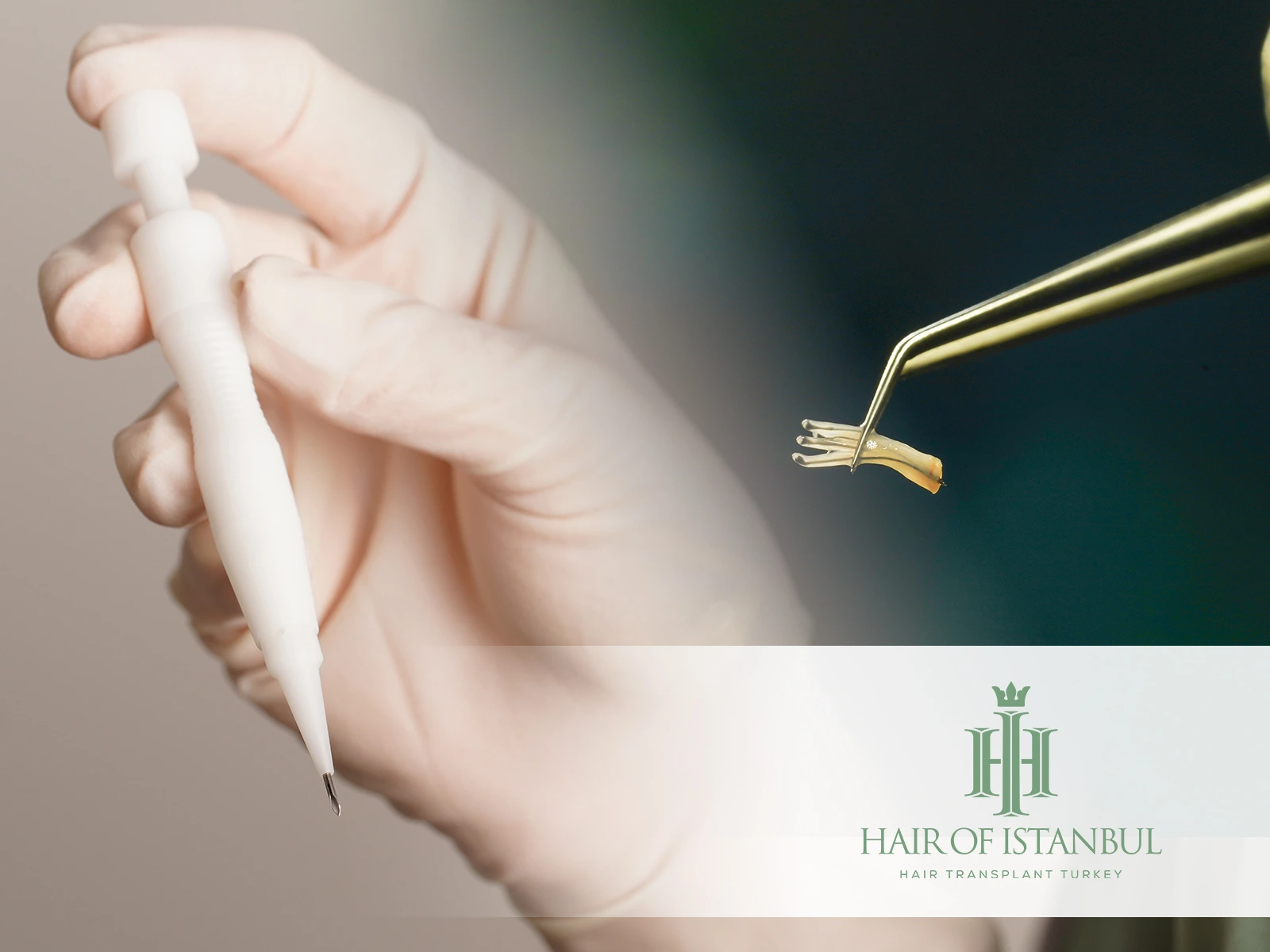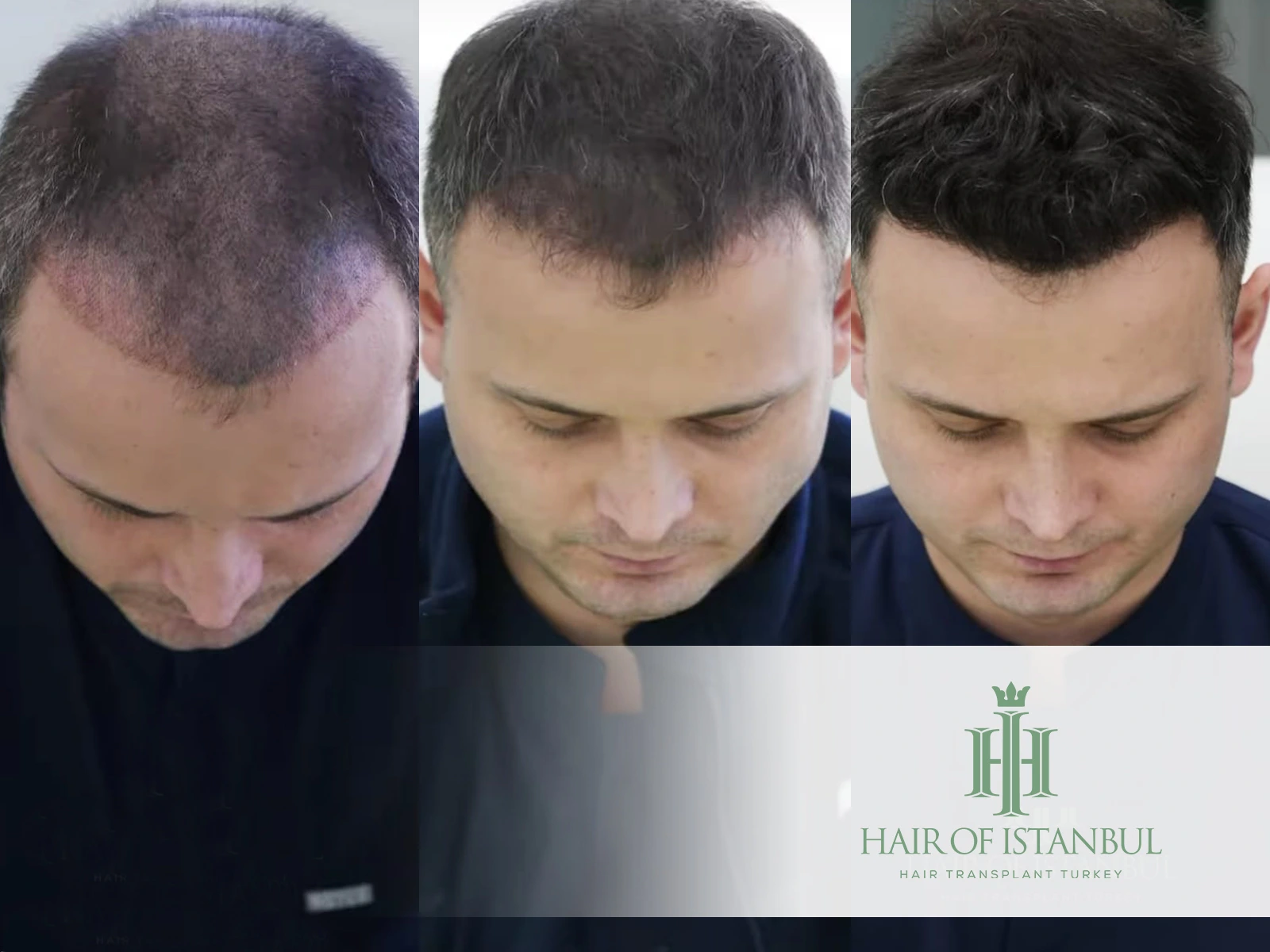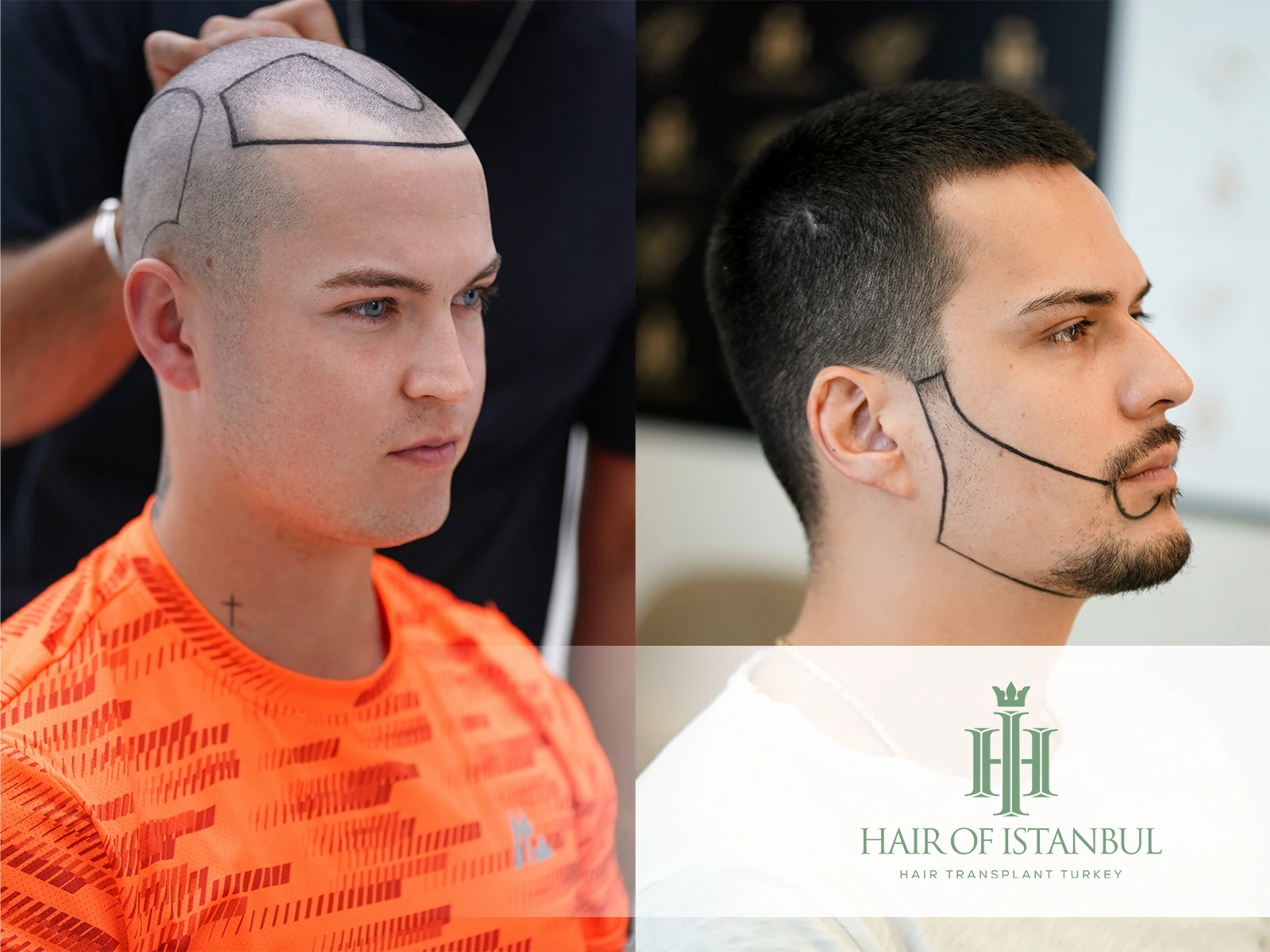How Many Grafts Do I Need for My Hair Transplant? Calculate It!
Are you considering a hair transplant and wondering how many grafts you might need? The answer to this question is not a one-size-fits-all, as it depends on various factors like the extent of your hair loss, your hair density, and the quality of your donor area.
Understanding the calculation of grafts required for a hair transplant is crucial. This knowledge will not only set realistic expectations for your procedure but also help maintain the natural appearance of your scalp.
This guide will provide valuable insights into how many grafts you might need for your hair restoration journey, ensuring you’re well-equipped to make an informed decision.
What is a Hair Graft?
A hair graft refers to a small portion of hair-bearing tissue that is transplanted into a balding or thinning area on the scalp during a hair restoration procedure. Grafts are typically extracted from a donor area – often the back or sides of the scalp where hair is more resistant to balding – and then implanted in the area needing coverage.
1 Graft = How Many Hair?
The number of hairs in each graft can vary, usually ranging from two to four hairs. The quantity and placement of these grafts play a crucial role in achieving a natural-looking hair restoration result.
Also Read: How Often Should I Shampoo and Condition My Hair (Male)?
How Do I Calculate How Many Hair Grafts I Need?
Determining the number of hair grafts you need for a successful hair transplant is an intricate process. This count depends on several factors, including the extent of hair loss, individual hair characteristics, and the quality of the donor area.
Professionals often employ the Norwood scale, a widely recognized measurement system for male pattern baldness, to guide this calculation. However, the Norwood scale encompasses various stages of hair loss, making the process a bit complex for some to comprehend.
For a clearer, more straightforward understanding, you might find examining the accompanying visual guide helpful. It provides a more immediate and intuitive understanding of how many grafts you may need for your specific stage of hair loss.
Number Of Grafts And The Area They Cover
To gain a more detailed perspective on how many grafts you might need, it’s beneficial to refer to a specialized chart. This visual aid illustrates the approximate coverage that can be expected from various graft counts.
By cross-referencing this table with your hair loss pattern, you can get a better idea of the number of grafts required for your specific case.
| Number of Grafts | Extent of the covered area |
| 500 | This graft count is typically insufficient for a large-scale transplant, potentially only covering areas like temples where hair loss is localized. |
| 1000 | A graft number of 1000 may serve for sparse transplants on patients with minor hairline recession, approximately 2 cm, or for facial hair grafts, like beard transplants. |
| 2000 | A graft count of 2000 can potentially cover up to a third of the scalp, making it suitable for patients with moderate hairline recession of about 3-4 cm, or those experiencing balding solely in the crown area. [1] |
| 3000 | A graft count of 3000 has the potential to restore hair on major portions of the scalp, typically beneficial for those seeking comprehensive treatment across two or three areas like the hairline and crown. [2] |
| 4000 | For individuals who have lost about half of their hair in the upper region of the scalp, including receding temples and frontal hairline, a graft count of approximately 4000 can often facilitate substantial hair restoration. |
| 5000 | A graft count nearing 5000 suggests an intense hair transplant, typically covering from nape to forehead with decent density. This implies that a patient requiring such a transplant has experienced near-total hair loss, reaching the limits of the donor area. |
* The exact quantity of grafts is dependent on the size of the recipient’s head and the quality of the donor hair.
Hair Graft Calculation For Women
In the case of female hair transplantation, the Ludwig Scale is often utilized to determine the number of hair grafts needed.
This scale, specifically designed for female pattern baldness, is somewhat simpler compared to the Norwood scale used for men, as it focuses primarily on the thinning of hair rather than a receding hairline or bald patches.
To aid in understanding, the table below presents an estimate of the average graft counts required according to various Ludwig levels. [3]
| Ludwig Stage | Average Number of Hair Grafts Needed |
| 1 | 500-1000 |
| 2 | 1000-2000 |
| 3 | 2000+ |
Also Read: Is It Normal to See Scalp When Hair Is Wet? Am I Balding?
Typical Graft Count in an Individual’s Donor Area
The number of hair grafts available for hair transplantation procedures is intrinsically limited by the donor region’s graft count. On average, an individual’s donor area typically harbors between 5000 and 6000 hair grafts. Nevertheless, this range is not fixed and can vary from person to person. [4]
One of the significant cosmetic risks in hair transplantation is over-harvesting, which can disrupt the homogeneous appearance of the donor area. Professional medical teams can offer assistance in estimating the number of donor hair grafts in your donor area, ensuring a balance between effective hair transplantation and maintaining the natural look of the donor site.
Graft Counts with Real Results
You can also gain insights into graft counts from the before and after photographs of hair transplant procedures performed at the Hair of Istanbul clinic. These successful results can provide a real-world context to understand the transformation achievable with various graft numbers.
By examining these images, you can develop a clearer idea of the number of grafts you might need for your hair restoration. Check out the photos below for more insights.
1000 Grafts Hair Transplant
- Number of Grafts: 1200
2000 Grafts Hair Transplant
- Number of Grafts: 2000
3000 Grafts Hair Transplant
- Number of Grafts: 3400
4000 Grafts Hair Transplant
- Number of Grafts: 4200
5000 Grafts Hair Transplant
- Number of Grafts: 5500
Also Read: How Syphilis Causes Hair Loss? Learn Its Effect and Treatment!
CONCLUSION
In conclusion, the number of grafts needed for your hair transplant is a highly individual matter, based on numerous factors, such as the extent of your hair loss, your hair characteristics, and the quality of your donor area. It’s essential to understand these variables to set realistic expectations and achieve satisfying results.
As experienced surgeons at Hair of Istanbul, one of the leading hair transplantation clinics in Turkey, we have carried out numerous successful operations. Our dedicated team, combining expertise and personalized care, ensures every patient’s unique needs are met. We pride ourselves on the meticulous planning and execution of each transplant, maximizing the potential of each graft for an optimal outcome.
The journey to restoring your hair is a significant one, and we at Hair of Istanbul are committed to walking that path with you. Our mission is to deliver results that not only meet but exceed your expectations, helping you regain your confidence along with your hair. Remember, your satisfaction is our success.
References:
- [1] Phebe, Sep 19, 2022 – How many grafts do I need for a hair transplant? – https://www.uksmiles.co.uk/how-many-grafts-do-i-need-for-a-hair-transplant
- [2] The Private Clinic of Harley Street, Feb 24, 2023 – How many hair grafts do I need? – https://www.theprivateclinic.co.uk/blog/how-many-hair-grafts-do-i-need/
- [3] Michelle Parekh, Dec 1, 2017 – How many grafts do I need? – https://wimpoleclinic.com/blog/many-grafts-needed-hair-transplant/
- [4] Heva Clinic, Oct 31, 2021 – How Many Hair Grafts Do I Need? | Norwood Scale – https://www.dentalhairclinicturkey.com/how-many-grafts-do-i-need/







